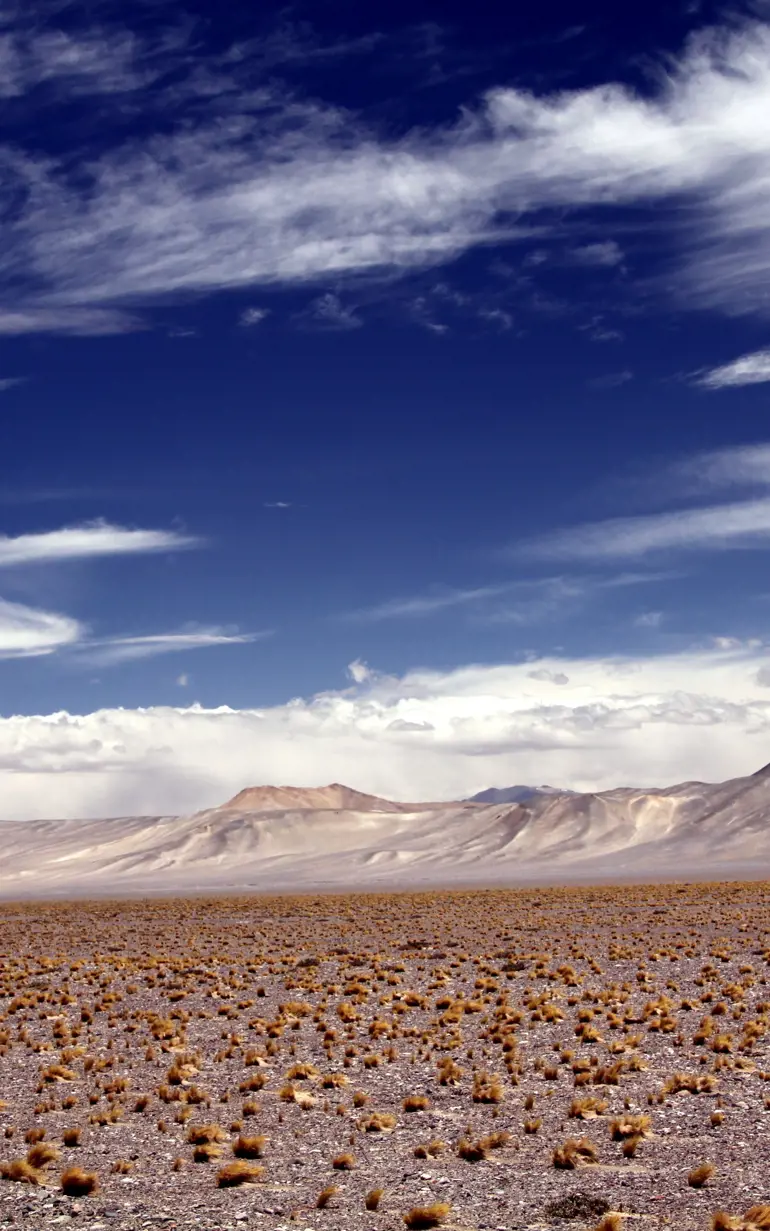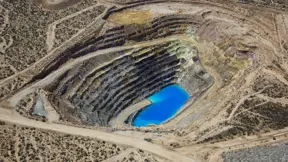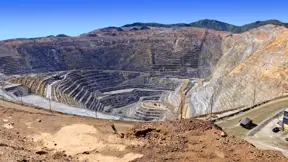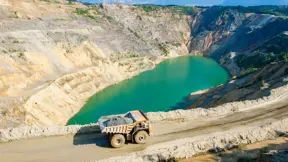
Feasibility studies for a lithium brine mining project in northern Chile
Exploration, environmental and feasibility studies for the Blanco Lithium Project in Salar de Maricunga
The Blanco Lithium Project, located in Salar de Maricunga, III Region, Chile, is being developed by Minera Salar Blanco (MSB) and Lithium Power International (LBI). Results of early exploration activities in 2012 identified high-grade lithium resources that justified further investments to initiate feasibility and environmental permitting studies. To ensure the protection of surrounding water systems during lithium extraction, DHI and Atacama Water performed hydrogeological investigations as well as resource and reserve modelling. These investigations led to the successful completion of a positive Definitive Feasibility Study (DFS) that indicated sufficient lithium carbonate equivalent (LCE) reserves to support an annual production of 20,000 tonnes over a 20-year project life.
Challenge
The Blanco Lithium Project is located at an elevation of 3,750 masl in Salar de Maricunga, an enclosed endorheic basin without external drainage. The climate is characterised by little precipitation, high evaporation rates and low average annual temperatures.
The lithium brine resources occur in shallow halite units and underlying clastic sediments in the nucleus of the Salar. Alluvial fans surround the Salar and host fresh groundwater resources that locally feed springs and wetlands along the margin of the Salar. It is thus vital to protect the surrounding water system while extracting the lithium resources.
For long-term sustainable lithium brine operation development, a thorough understanding of the local and regional hydrological systems is needed. This is to prevent dilution of lithium concentrations from freshwater inflows while protecting the local wetlands and eco-systems. To support this, complex numerical groundwater flow and transport modelling were needed to evaluate lithium reserves according to international standards (NI 43-101), support the project’s DFS and obtain environmental permits from the Chilean authorities.
Solution
Atacama Water was contracted to act as a ‘Qualified Person’ for the lithium resource and reserve estimation work. This involved execution of more than 40 exploration holes, production wells, piezometer installations as well as numerous in-depth hydrogeological field investigations to support the development of the conceptual hydrogeological model for Salar de Maricunga. More specifically, the work included:
- Defining the three-dimensional distribution of lithium concentrations and hydraulic parameters in the Salar
- Locating the brine/freshwater interface
- Characterising the local wetland systems
- Quantifying recharge and discharge mechanisms
- Developing a water balance
The latest NI 43-101 resource estimate includes more than two million tonnes of Measured and Indicated Resources of LCE. In addition to the work performed by Atacama Water, DHI built, calibrated and operated a FEFLOW numerical groundwater flow and transport model to:
- Simulate the brine production from the Salar
- Evaluate potential environmental effects to support the project’s environmental impact assessment (EIA)
- Estimate the lithium brine reserves
The FEFLOW groundwater model included dynamic evaporation, solute mass transport and implementation of different tracers to fully characterise the origin of the LCE mobilised by the operation of the mine. In addition, the model was used as an optimisation tool to identify the best locations for the pumping wells in order to minimise possible environmental impact.
Results of these model simulations indicate sufficient LCE reserves to support an annual production of 20,000 tonnes over a 20-year project life.
Results
The hydrogeological investigations as well as resource and reserve modelling led to the successful completion of a positive Definitive Feasibility Study. The study supports a 20,000-tonne per year ‘battery grade’ lithium carbonate equivalent production over a 20-year mine life and the acquisition of all environmental permits for construction and operation of the project.
Client:
Location:
Chile
Related SDG(s):
SDG 6: Ensure availability and sustainable management of water and sanitation for all
SDG 9: Build resilient infrastructure, promote inclusive and sustainable industrialization and foster innovation
Technology:
FEFLOW
SGeMS (solution by Atacama Water)
LEAPFROG (solution by Atacama Water)
‘We have achieved all project milestones thanks to our partnership with DHI and Atacama Water. Their experience and state-of-the-art mathematical models were key in securing the environmental go-ahead from authorities. We are confident that the subsequent commencement of the construction will generate a positive impact both for the local communities and the country.’
Cristobal Garcia-Huidobro, CEO
Minera Salar Blanco (MSB) and Lithium Power International (LPI)
About our client
Lithium Power International is a pure play lithium company focused on the development of Chile’s next high-grade lithium mine. Minera Salar Blanco (MSB) is the local Chilean operating company that is developing and operating the Blanco Lithium Project. The company is majority-owned by Lithium Power International.
About our partner
Atacama Water is a hydrogeological consultant specialised in the evaluation and development of lithium brine resources.
You may also like
How can we help?
With our global network of offices, we make sure you get the right answers to your local needs. Tell us about your water challenges and we will get back to you.


